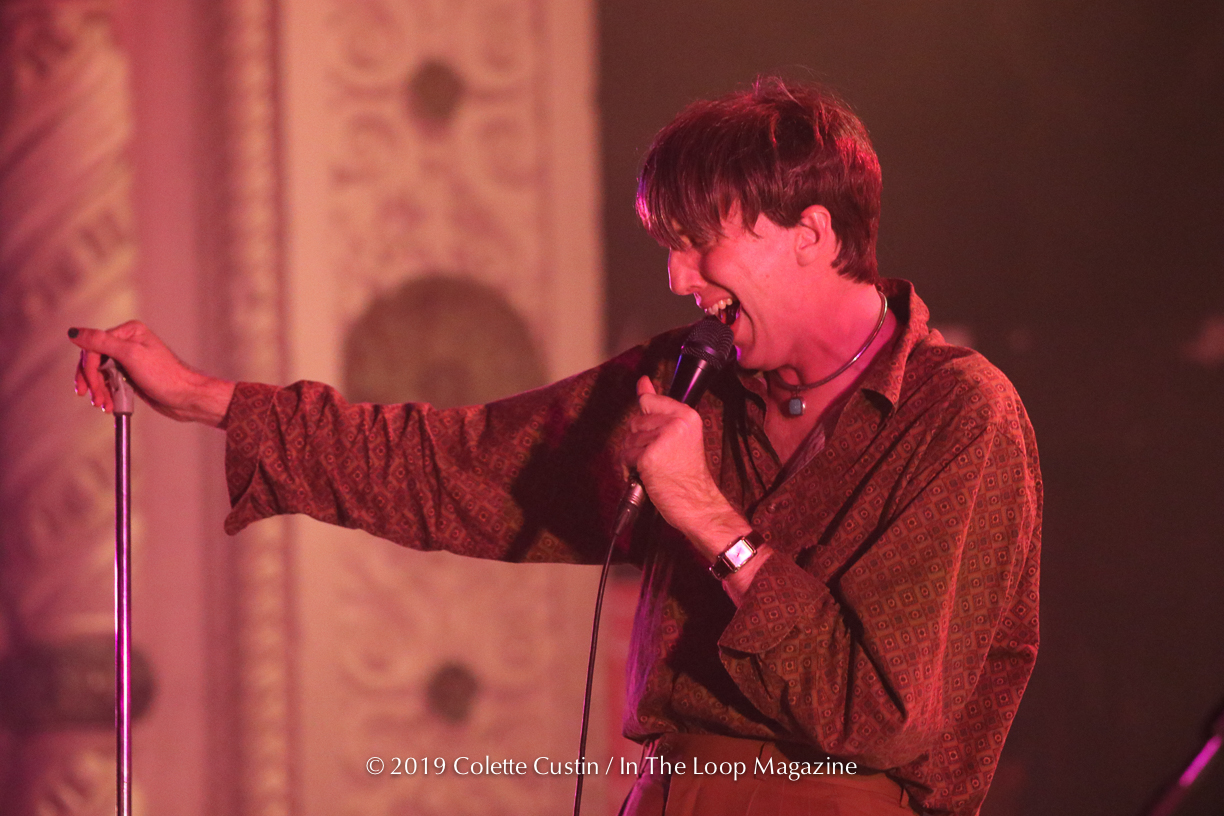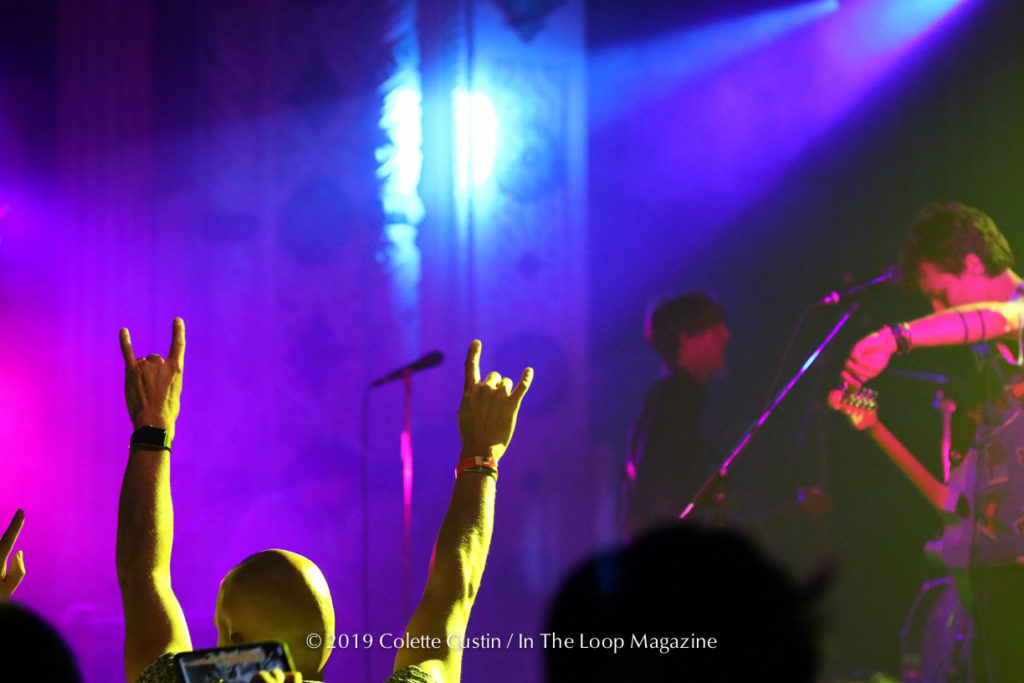Latest News
- Legendary Mask Maker, Zagone Studios, Approaches Fifty-Years Of Innovation Right Here In Chicago
- Kid Cudi Returns In 2026 With ‘The Rebel Ragers Tour’ Featuring Special Guests M.I.A., Big Boi, A-Trak, me n ü, And Dot Da Genius
- Chicago’s Independent Music Venues Contribute $2.8 Billion to Local Economy Proving An Important Pulse On The Scene But Is It Enough
- Chicago Band The Head Caution Team Up With WREX And Guns & Ammunition For One Night Only At Live Wire Lounge
- Colonel Claypool, Les Claypool, Announce 2026 Tour Bringing Together Primus, Claypool Lennon Delirium and Frog Brigade With Date At Salt Shed
- Slipknot’s Clown, Shawn Crahan, Is Building A Minecraft World For Gamers With A Theme Of Off Kilter Realm Of Danger And Mayhem
Deerhunter Blends Genres Producing Some Of The Most Fascinating Modern Rock At Metro
Jul 10, 2019 admin_bitlc Uncategorized 0

By Christopher David
Deerhunter brought their version of shoegazy, indie-garage pop to the Metro on Sunday in support of new album Why Hasn’t Everything Already Disappeared? and their 90-minute set highlighted, in numerous ways, why the band’s particular blend of genres remains one of the most fascinating in all of modern rock.

Let’s just get this out there right off the top: vocalist/guitarist Bradford Cox, a visionary talent in his own right (the band offered numerous original paintings by Cox at the merch table), is criminally underrated as a frontman. There are moments of influence – everyone from Jarvis Cocker to Mick Jagger – but Cox’s style isn’t a straightforward rousing of the crowd, and he didn’t have to. The tender, sparsely arranged “Sailing” became a woozy lullaby, and on the breezy “Desire Lines” and Bowie-esque “Take Care,” the punchy addition of his guitar-playing added some melodic depth.

Deerhunter is not a band that remains true to a specific style for very long, and the quintet has consistently made it a point to vary its approach from album to album. It’s to their credit, in light of that, that their live show is so cohesive; at times, the sequencing of the set felt almost narrative, in a way, especially considering the engaging opening set from drummer Moses Archuleta (more on that in a minute). New single “Death in Midsummer” combined elements of Brit-pop with an almost Wilco-like sense of arrangement, with layers of sound dropping in and out over a consistent, infectious melody, and “What Happens to People” had a bit more teeth live than on record. Contrasted against straightforward, jangly R.E.M.-styled pop like “Agoraphobia” from 2008’s Microcastle, the setlist nailed a unique ebb-and-flow that made every song feel important.

As previously noted, Achuleta opened the night with his ambient, one-man side project, and the decision to have Moon Diagrams as an opener gave the whole show a more cohesive structure that proved far more interesting than just having another band start things off. Selections from his debut album (2017’s Lifetime of Love) vacillated between ominous, layered synth patterns and loops of radio-friendly pop melodies that sounded straight out of an actual transistor radio. Think Angelo Badalamenti’s work on the Twin Peaks soundtrack arranged like ‘90s-style trance, and you’re getting there.
For more on Deerhunter, click here
For photos of Deerhunter live at the Metro, click here
===================================================================================
Deerhunter – Metro, Chicago, IL, July 7, 2019 (setlist)
Intro
Cryptograms
Disappearing Ink
Death in Midsummer
Element
Revival
Plains
What Happens to People?
Helicopter
Desire Lines
Sailing
Take Care
Cover Me (Slowly)
Agoraphobia
Futurism
Coronado
Monomania
Related Articles
-
 Legendary Mask Maker, Zagone Studios,...
Legendary Mask Maker, Zagone Studios,...Oct 25, 2021 1
-
 Kid Cudi Returns In 2026 With ‘The...
Kid Cudi Returns In 2026 With ‘The...Jan 26, 2026 0
-
 Chicago’s Independent Music Venues...
Chicago’s Independent Music Venues...Jan 21, 2026 0
-
 Chicago Band The Head Caution Team Up...
Chicago Band The Head Caution Team Up...Jan 20, 2026 0
-
 Colonel Claypool, Les Claypool,...
Colonel Claypool, Les Claypool,...Jan 20, 2026 0
More in this category
-
 K-Pop Supergroup Stray Kids Make...
K-Pop Supergroup Stray Kids Make...Jun 28, 2025 0
-
 First Look at Kokandy...
First Look at Kokandy...May 30, 2025 0
-
 The Top-Selling Artists of 2025:...
The Top-Selling Artists of 2025:...May 13, 2025 0
-
 The Life And Times Of A Metal Giant And...
The Life And Times Of A Metal Giant And...Apr 26, 2025 0









